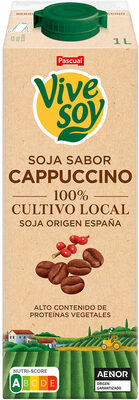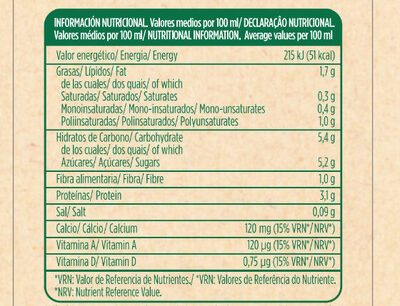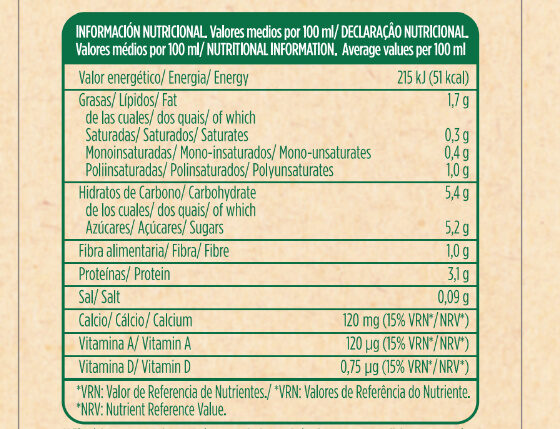Vivesoy Capuchino - Pascual - 1 l
Aquesta pàgina del producte no està completa. Podeu ajudar a completar-la editant-la i afegint-hi més dades a partir de les fotos ja disponibles, o fent-ne més amb l'aplicació de androide o iPhone / iPad. Gràcies!
×
Algunes de les dades d’aquest producte les ha proporcionat directament el fabricant Pascual (Leche Pascual, Bezoya, Vivesoy, Mimik, Bifrutas, Dinamic Protein).
Codi de barres: 8410128785369 (EAN / EAN-13)
Nom comú: Bebida de soja con café y cacao, con azúcar y edulcorantes con Calcio y vitaminas A y D
Quantitat: 1 l
Categories: Aliments i begudes amb base vegetal, Begudes, Aliments amb base vegetal, Llegums i derivats, en:Dairy substitutes, Substitutius de la llet, Begudes amb base vegetal, Begudes vegetals, Begudes de llegums, en:Coffee drinks, Beguda de soja
Etiquetes, certificacions, premis: Comptador Nutricional, Experiment Nutriscore, Grau A NutriScore experimental, Grau A Nutriscore, es:100 % Cultivo Local
Origen dels ingredients: Espanya
Països on es va vendre: Espanya
Matching with your preferences
Entorn
Petjada de carboni
Empaquetament
Transport
Report a problem
Fonts de dades
Producte afegit per kiliweb
Última modificació de la pàgina del producte per carnaual.
La pàgina del producte, també editada per alexfauquette, moon-rabbit, org-pascual-leche-pascual-bezoya-vivesoy-mimik-bifrutas-dinamic-protein, raturina, worldtest, yuka.sY2b0xO6T85zoF3NwEKvlmFfTOr5nCzbEkTQnkLX-PvfHoWxPdR70IGrE6s, yuka.sY2b0xO6T85zoF3NwEKvlmdjYYGHpxCdGjz6kFCV3cWydITmO9dV8pnrbKo.










